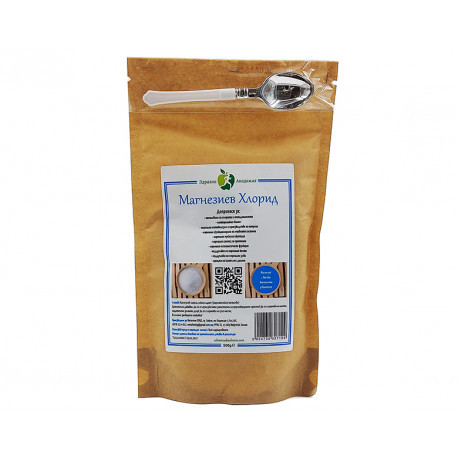Copyright © 2012 - 2021 NaturalniProdukti.com
- Superfoods
- Supplements
- Butter/Oil
- Argan oil
- Almond oil
- Ghiy
- Olive oil
- Apricot oil
- Cocoa butter
- Coconut oil
- Hemp oil
- Linseed oil
- Walnut oil
- Rapeseed oil
- Sunflower oil
- Drinks
- Food
- Grains and Legumes
- Bean
- Lentils
- Rice
- Quinoa
- Buckwheat
- Wheat, spelt, spelled
- Millet, amaranth, rye, chickpeas, bulgur, soybeans
- Seeds, nuts, dried fruit
- Refreshments
- Pasta
- Noodles
- Macaroni
- Cous cous
- Spaghetti, Linguini
- Fusilli, farfalle
- Penne
- Tagliatelle, Pappardelle
- Lasagna, Cannelloni, Gnocchi
- Flour
- Starch
- Soda, yeast, starters
- Salt
- Himalayan salt
- Sea salt
- French Celtic salt
- Potassium vital salt
- Sugar
- White sugar
- Brown sugar
- Coconut sugar
- Sweeteners
- Syrup
- Maple syrup
- Syrup of Elderberry
- Agave syrup
- Cosmetics
- Cosmetics for face
- Face cream
- Anti-acne cosmetic
- Serums and oils for face
- Masks and bran Face
- Cleansing cosmetics for face
- Floral waters
- Cosmetics for eyes
- Cosmetics for lips
- Body cosmetics
- Body lotion
- Body oils
- Forming creams
- Massage oils
- Pregnant and lactating
- For man
- Cosmetics for babies and children
- Deodorants
- Hair cosmetics
- Shampoos
- Conditioners
- Hair masks
- Oils, serums and lotions for hair
- Sets Hair
- Others
- Preparations
- Superfoods
- Supplements
- Butter/Oil
- Argan oil
- Almond oil
- Ghiy
- Olive oil
- Apricot oil
- Cocoa butter
- Coconut oil
- Hemp oil
- Linseed oil
- Walnut oil
- Rapeseed oil
- Sunflower oil
- Mustard oil
- Sesame oil
- Pumpkin oil
- Rosehip oil
- Avocado oil
- Oil Milk Thistle
- Coriander oil
- Poppy seed oil
- Sea buckthorn oil
- Siberian cedar oil
- Black Cumin oil
- Chia seed oil
- And more types of oil
- Drinks
- Food
- Cosmetics
- Others
- Preparations
- Home/
- Supplements/
- Nutritional supplements/
- Powders / Sachets/
- Magnesium chloride
Magnesium chloride reduces fatigue and tiredness, supports electrolyte balance, normalizes metabolism and energy production.
Packaging: 500 g.
Origin: Poland
Ingredients: Magnesium chloride hexahydrate (pharmacopoeia quality)
Magnesium chloride - dietary supplement!
Magnesium chloride is a natural form of magnesium present in the seas and oceans. When dissolved in water, magnesium chloride ion taking shape - excellent, highly absorbable source of magnesium in the body.
Magnesium chloride of high purity (eg pharmacopoeia quality.) Is a great source of magnesium for the human body and can be used for:
- Oral supplementation (dissolved in water);
- Add to water for bathing / soaking in a tub or other container;
- Transdermal - homemade magnesium oil.
Magnesium chloride is a cofactor in over 300 enzyme systems in the body and contributes to:
- Reduction of tiredness and fatigue;
- Electrolyte Balance;
- Normal metabolism and energy production;
- The functioning of the nervous system;
- Normal protein synthesis;
- The normal psychological function;
- The formation of bone tissue;
- Maintaining healthy teeth;
- The process of cell division;
- Control of blood sugar levels.
Why use magnesium chloride as a dietary supplement?
Contributing to the proper functioning of the nervous system and normal mental function
Even a slight deficiency of magnesium can cause increased sensitivity to sound, nervousness, irritability, mental depression, confusion, wobble, tremors, anxiety and insomnia. Magnesium is often the best solution for depression, sleep problems, emotional disorders and neurological diseases because it has a strong calming and nourishing effect on the nervous system.
Experts confirm positive results from supplementation in children with magnaziy HRNV (ADHD).
- For normal muscle function and contraction, including heart muscle
Over a third of the magnesium in the body is located in the muscles. Magnesium regulates muscle contraction. Studies show that lack of magnziy leads to cramps and muscle aches.
Low levels of magnziy are also associated with cardiac arrhythmic and elevated blood pressure.
- Contributes to normal protein synthesis
Magnesium is required for the synthesis of DNA, RNA, proteins and glutathione.
- Formation of bone tissue
Magnesium is involved in the process of bone formation and interferes with the action of osteoblasts and osteoclasts. Also affects the concentration and effects of parathyroid hormone and active form of vitamin D, which are key regulators of bone homeostasis. It is necessary for adoption, transport and metabolism of calcium.
Studies show that taking magnesium improves bone density.
Low levels of magnesium and low ratio of magnesium-calcium is associated with increased risk of pparadontoza and poor condition of the teeth.
- Magnesium plays a role in cell division
Low levels of magnesium are associated with increased oskidativniya stress and decreased cell proliferation. In the long incubation of human fibroblasts in terms of magnesium deficiency, they exhibit characteristics of reusable Older cells.
- Magnesium and Type 2 Diabetes
Magnesium deficiency is common in patients with type 2 dibaet Magnesium is involved in many enzyme systems responsible for glucose homeostasis. Affects the secretion of insulin and the uptake of glucose by cells. Magnesium deficiency inhibits acute phase of insulin secretion in the case of a glucose challenge.
Deficiency of magnesium is associated with insulin resistance and magnesium supplementation is associated with reduced need isulin and improved removal of glucose in diabetic patients. Magnesium chloride improves the ability of beta cells to compensate for changes in insulin sensitivity.
contents:
Magnesium chloride hexahydrate (pharmacopoeia quality)
Content in the daily dose:
Adults: 180 mg
For children: 90 mg of
Directions:
For adults and children over '14 .: 1,500 mg (1 coffee spoon)
For children over 6 g .: 750 mg (1/2 coffee spoon)
Be taken dissolved in water or other liquid.
How to make magnesium oil?
Magnesium oil is prepared from 1 part of magnesium chloride and 2 parts of water. Some recipes offer a 1: 1 ratio (personally I just use it), but for starters, while the skin is not accustomed, I suggest concentration to be slightly weaker.
We need:
Magnesium chloride - dietary supplement - 100 g.
200 g (ie 200 ml) of clean water (preferably distilled or deionized - you can buy at any gas station).
Small pot for heating water.
Plastic straw (or scoop of plastic or wood).
Glass bowl or jar.
Empty, well washed with a spray bottle - best of dark glass.
Using the above recipe, you will receive in October 230 ml magnesium oil. It is easy to notice that the recipe has no oil gram! The resulting liquid, however, has the consistency of oil - when you inflict on your skin will feel greasy slip like after baby oil. Hence the name: magnesium oil. This is truly rejuvenating and beautifying cosmetic.
Pour into a bowl dimensions magnesium chloride, warm up distilled water and add salt. Stir with a straw, while magnesium salt is dissolved. Ready! Cool, transfer the bottle and use at will.
Food supplement! Do not exceed the recommended dose denvna! Do not use as a substitute for a varied diet! Keep out of reach of children! Store in a dry place in a tightly sealed container!Origin: Poland
- Related products
- Similar products
- Apple pectin powder (80 g)2.28 EUR
- Lyolact ®- synbiotic5.06 EUR
- CommentsNo results found
- Product comments
- Newsletter






